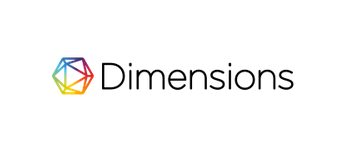The Influence of Corporate Culture on Employee Performance at Daima Hotel Padang
DOI:
https://doi.org/10.63076/jomm.v2i2.47Keywords:
Corporate Culture, Employee Performance, Hospitality Industry, Organizational Behavior, Hotel ManagementAbstract
This study aims to evaluate the effect of corporate culture on employee performance at Daima Hotel Padang. Employing a quantitative causal-associative design, data were collected from all 60 hotel employees using a saturated sampling technique and analyzed through simple linear regression with SPSS version 26.0. The results reveal a regression coefficient of 0.286 with a significance value of 0.001 (p < 0.05), indicating that corporate culture has a positive and statistically significant influence on employee performance. The coefficient of determination (R²) of 0.182 suggests that corporate culture accounts for 18.2% of the variance in employee performance, while the remaining 81.8% is explained by other factors not examined in this study. These findings underscore the strategic importance of cultivating a strong organizational culture—characterized by shared values, adherence to Standard Operating Procedures (SOPs), effective communication, and supportive leadership—in enhancing service quality, operational efficiency, and interdepartmental collaboration. The study provides both theoretical contributions, by reinforcing the relevance of organizational culture theory in the hospitality sector, and practical implications, by offering actionable insights for hotel managers to strengthen corporate culture as a means of improving employee performance. Future research is recommended to incorporate additional variables such as job satisfaction, leadership style, and employee engagement, as well as to adopt longitudinal or multi-site designs for broader applicability.
References
A. P. Yakup, Pengaruh sektor pariwisata terhadap pertumbuhan ekonomi di Indonesia, Doctoral dissertation, Universitas Airlangga, Surabaya, Indonesia, 2019.
P. I. A. Dewi, Pengaruh Tingkat Pendidikan, Corporate Culture, dan Knowledge Sharing terhadap Kinerja Karyawan pada Hotel Indigo Bali Seminyak, Doctoral dissertation, Universitas Dhyana Pura, Bali, Indonesia, 2023.
J. Haryono and M. Rahmanita, “Pengaruh keterlibatan karyawan dan budaya perusahaan terhadap kinerja perusahaan di Hotel Horison, Bandar Lampung,” J. Ilm. Pariwisata, vol. 28, no. 2, pp. 223–232, 2023.
Daima Hotel Padang, “Company Profile,” Padang, Indonesia, 2024.
E. H. Schein, Organizational Culture and Leadership, 5th ed. Hoboken, NJ, USA: Wiley, 2017.
C. A. O’Reilly, J. Chatman, and D. F. Caldwell, “People and organizational culture: A profile comparison approach to assessing person–organization fit,” Acad. Manage. J., vol. 34, no. 3, pp. 487–516, 1991, doi: 10.2307/256404.
D. R. Denison, “Corporate culture and organizational effectiveness,” Organ. Dyn., vol. 16, no. 4, pp. 5–27, 1988, doi: 10.1016/0090-2616(88)90028-9.
R. H. Kilmann, M. J. Saxton, and R. Serpa, Gaining Control of the Corporate Culture. San Francisco, CA, USA: Jossey-Bass, 1985.
S. Sugiyono, Metode Penelitian Kuantitatif, Kualitatif, dan R&D. Bandung, Indonesia: Alfabeta, 2020.
I. Ghozali, Aplikasi Analisis Multivariate dengan Program IBM SPSS 19. Semarang, Indonesia: Badan Penerbit Universitas Diponegoro, 2011.
W. M. Kothari, Research Methodology: Methods and Techniques, 4th ed. New Delhi, India: New Age International, 2020.
A. Field, Discovering Statistics Using IBM SPSS Statistics, 5th ed. Thousand Oaks, CA, USA: Sage, 2018.
G. P. Nardi, Doing Survey Research: A Guide to Quantitative Methods, 4th ed. New York, NY, USA: Routledge, 2018.
D. N. Gujarati and D. C. Porter, Basic Econometrics, 5th ed. New York, NY, USA: McGraw-Hill, 2009.
J. M. Ivancevich, R. Konopaske, and M. T. Matteson, Organizational Behavior and Management, 10th ed. New York, NY, USA: McGraw-Hill, 2017.
C. M. Rogerson and J. M. Rogerson, “Hotel upgrading in South Africa: Diverse pathways in the tourism space economy,” GeoJournal Tourism Geosites, vol. 29, no. 2, pp. 508–521, 2020, doi: 10.30892/gtg.29222-486.
P. Baum, “Hospitality workforce: Global issues and trends,” Int. J. Contemp. Hosp. Manag., vol. 27, no. 3, pp. 313–330, 2015, doi: 10.1108/IJCHM-12-2013-0535.
A. Kusluvan, S. Kusluvan, I. Ilhan, and L. Buyruk, “The human dimension: A review of human resources management issues in the tourism and hospitality industry,” Cornell Hosp. Q., vol. 51, no. 2, pp. 171–214, 2010, doi: 10.1177/1938965510362871.
M. Guerrier and E. Adib, “Work at leisure and leisure at work: A study of the emotional labour of tour reps,” Hum. Resour. Manag. J., vol. 13, no. 2, pp. 5–21, 2003, doi: 10.1111/j.1748-8583.2003.tb00101.x.
D. R. Denison, “What is the difference between organizational culture and organizational climate? A native’s point of view on a decade of paradigm wars,” Acad. Manage. Rev., vol. 21, no. 3, pp. 619–654, 1996, doi: 10.5465/amr.1996.9702100310.
Downloads
Published
How to Cite
Issue
Section
License
Copyright (c) 2025 Yulia Asnella, Arif Adrian

This work is licensed under a Creative Commons Attribution 4.0 International License.














